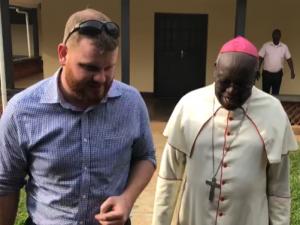
By David Hunter
It may seem hard to believe, but the peace processes of Uganda and Northern Ireland are more alike than many of us would care to admit.
As we battled with sectarianism in Belfast, Derry - Londonderry and Armagh, Uganda was in the midst of a rife war between the Government and rebel forces, spilling onto the streets of Gulu and Yumbe.
President Museveni was faced with strong opposition from Joseph Kony’s ‘Lords Resistance Army’. Each group believed it had the superior hand.
The LRA forced thousands of young boys from their homes to join a campaign of violent crime, murder and attempts to overthrow a Government which many Ugandan’s believe to be corrupt.
One of the main peace negotiators there has told Q Radio how it was dialogue that eventually led to a breakthrough, ending the violence.
LISTEN: Q Radio's David Hunter speaks to Archbishop Odama on the peace deal which ended war in Uganda
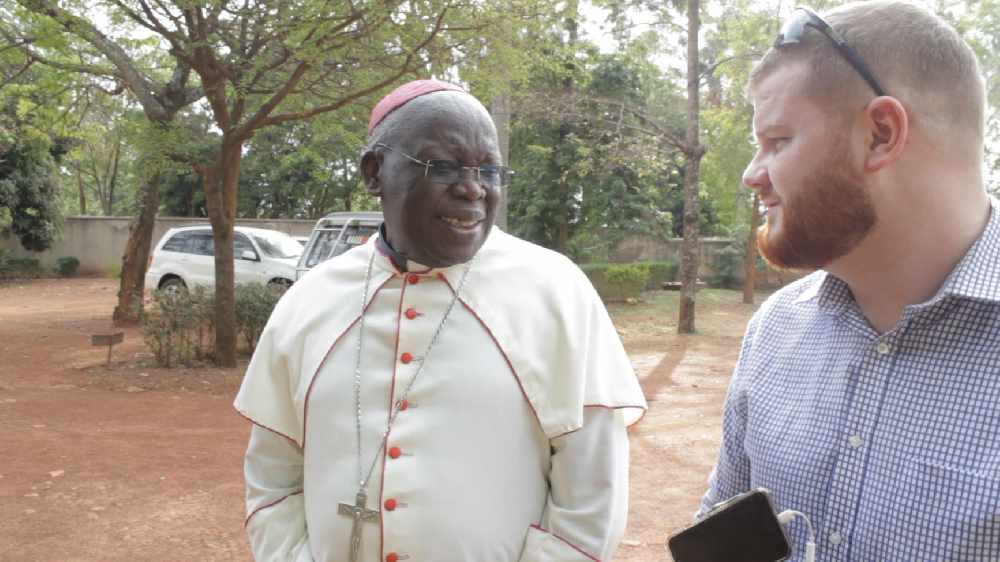
IMAGE: Q Radio's David Hunter meets Archbishop Odama in Uganda
Archbishop John Baptist Odama spent several years getting to know one of the world’s most prolific terrorists, Joesph Kony.
On a recent trip to the country with Trocaire, David Hunter spoke with the 70- year-old, hearing his account of what happened. “They did not trust us. But we had to convince both sides we were there to truly win their confidence to join peace talks” said Odama. “The process continued for a long time in the bush, peace talks are not easy.”
The Archbishop’s first negotiations began in 2002 in the over grown outbacks of Uganda. In secret locations he tried to keep the Government at arm’s length to gain Kony’s trust. It wo uld be 2008 before a deal could be reached and the two sides would agree to sign. Kony didn’t actually turn up.
‘STOP THE WAR, STOP THE WAR'
As he recalled the hours of nervous encounters with Kony and the LRA, Odama often referred to words and phrases heard by other peace leaders like Martin Luther King, Ghandi and, of course, local inspirations like John Hume and Lord Trimble.
“We are all people. We must learn to live together” he’d say.
Odama recalled traditional African sayings he used in those meetings with Kony, “When two elephants fight, the grass underneath their feet suffers. We are the victims of two elephants – the LRA and the Government.”
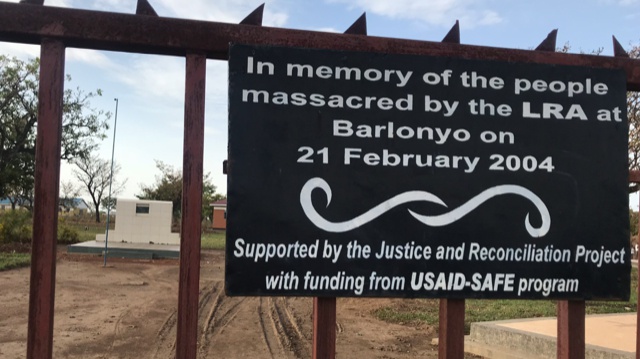
IMAGE: Hundreds of people were killed in atrocities across Uganda by rebel groups
The Archbishop said part of him learned to actually like and understand Joseph Kony’s personality, which was often paranoid. “When you were with him, and talking as we are talking now, he was very human and humorous” he said. “He looked to me as someone who was serious about what he was saying. But, when he was away from you he was very different, becoming cruel among people. “Maybe that was a tactic he was using to keep loyality to himself?” he questioned.
Odama believes the ruthless killer didn’t turn up to sign the final peace deal out of fear he would be double-crossed and arrested. Kony often said he would be shot, or hanged if he was to meet the government.
In one of their final encounters the religious figure said he could see the war criminal was at a turning point in Ugandan history. “From that time to now, we have had no guns by the LRA” He said. “Our people are doing well and Uganda is peaceful.”
Links to Northern Ireland

I asked Archbishop Odama if he was aware of Northern Ireland’s conflict when he was trying to resolve the issues in Uganda. He said “Some similarities we saw, yes. But, of course, yours (Northern Ireland’s) was more religious. “The most interesting thing is, when human beings break relations, they become strangers to each other, all foreigners to each other. They don’t recognise this is a human being like me.”
The Archbishop travelled to Ireland for around two weeks and said he learned extensively about the conflict. He told us he encouraged political leaders here to remind people to respect each other.
When military groups in Ulster were declaring ceasefires, Trocaire staff were already on the ground in Uganda working with the missionaries and the church.
In 2018, now that both countries are moving on, it’s easy to see where the lines of conflict can cross paths in situations around the world.
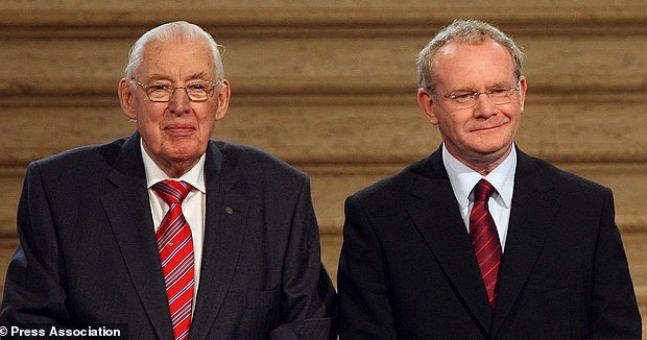
IMAGE: (PA) DUP Leader Ian Paisley and former IRA member, Sinn Fein's Martin McGuinness used dialogue to share power in Northern Ireland.
Dialogue was key to ending the killing on both sides, in both countries.
Controversial deals and tough decisions had to be made to encourage murderers to stop killing and re-engage with civic society again. (Many LRA members have been given letters saying they’re not wanted for the crimes they committed under Kony’s rule)
Uganda’s problem’s in recent years have largely shifted to focus on the plight of refugees, human rights, political challenges and the fallout of the war. Trocaire only has a handful of staff in the country. They help distribute funds, support and training to a range of partners and projects which can help.
As he greeted us in the Archbishop’s Residence in Gulu, Archbishop Odama welcomed Irish Charity staff as if they were old friends. The first name terms indicated he was well aware of their work in the Country, and that he held them in high regard.
“Thank all of the people of Ireland” he said, when asked how it had impacted on the country. Odama made clear that Uganda still has some distance to go, but said it was now on the right path to develop through peace.
- In the words of Odama, “we are all humans.”


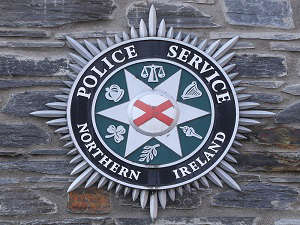 Teenage girl killed in road crash named as Kamile Vaicikonyte
Teenage girl killed in road crash named as Kamile Vaicikonyte
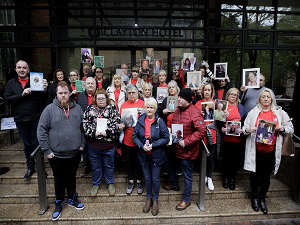 Covid-19 inquiry ‘an opportunity for candour’ from Stormont leaders
Covid-19 inquiry ‘an opportunity for candour’ from Stormont leaders
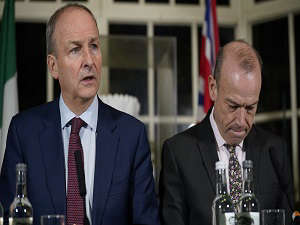 UK and Irish ministers to meet amid row over migration
UK and Irish ministers to meet amid row over migration
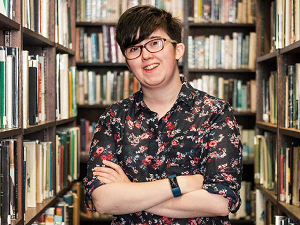 Three men set to go on trial for murder of journalist Lyra McKee
Three men set to go on trial for murder of journalist Lyra McKee
 Swann refuses to rule out resigning if budget is not changed
Swann refuses to rule out resigning if budget is not changed